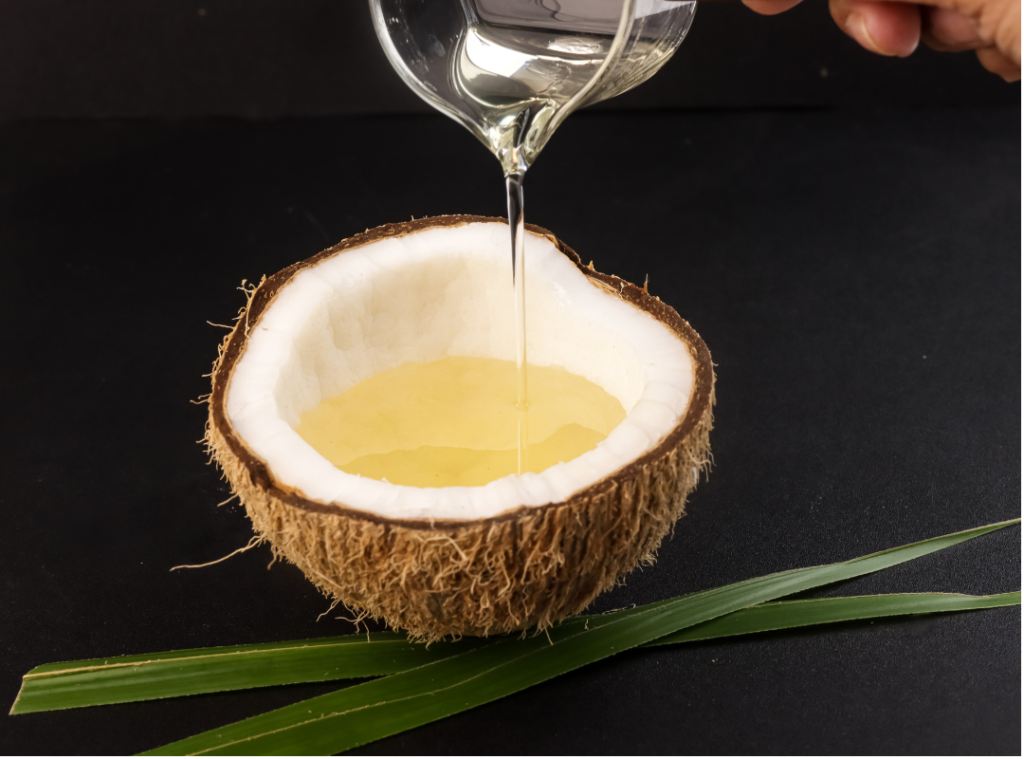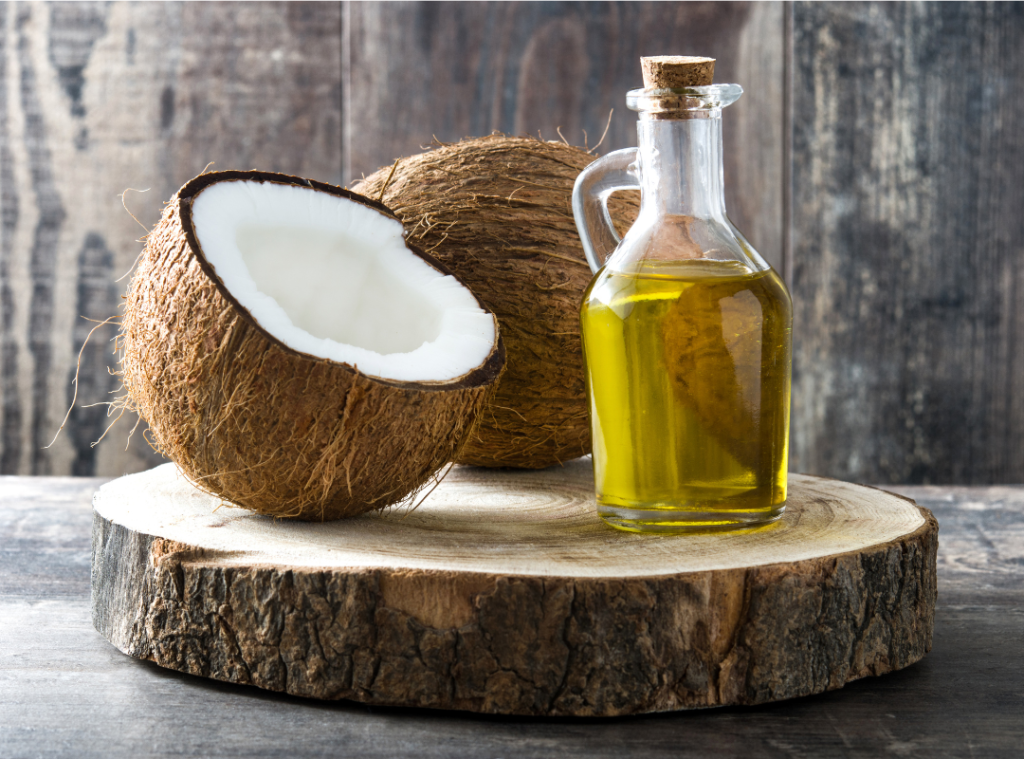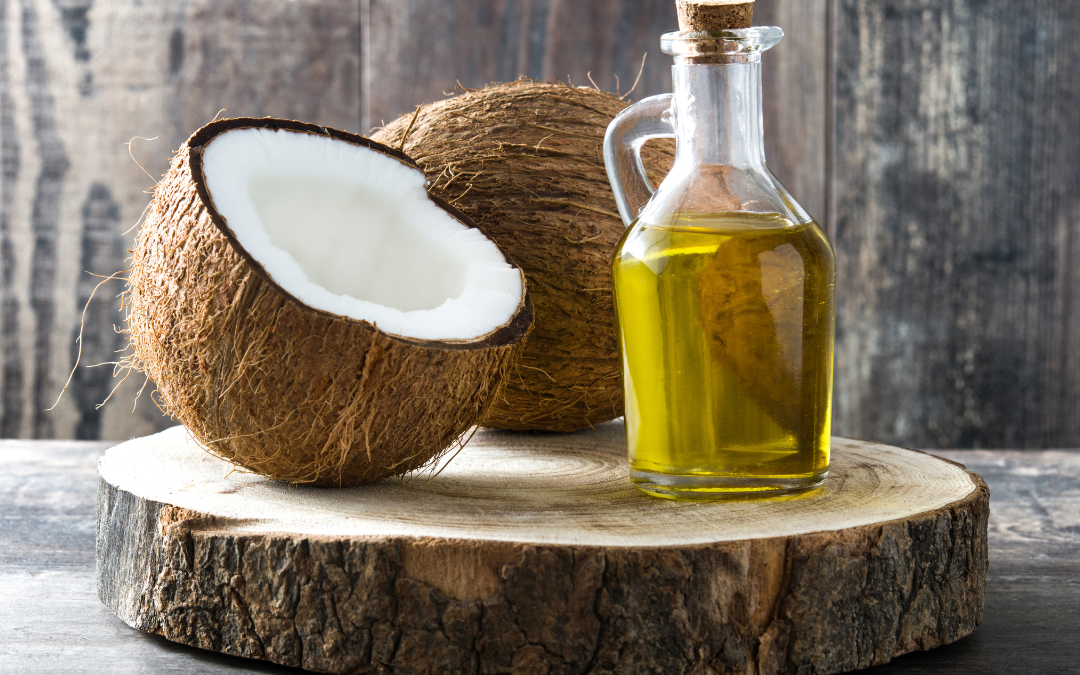Coconut oil is a type of fat that has gained attention due to its health benefits. These benefits range from lowering LDL cholesterol levels to improving brain function in Alzheimer’s patients, and it is associated with numerous health advantages. In fact, several studies have shown that using coconut oil on the face may also offer benefits for skin health.
Coconut oil is a highly saturated oil traditionally made by extracting oil from raw coconuts or dried coconut kernels. It is solid at room temperature but can become soft or even melt when warmed. It is often used in cooking or applied directly to the skin and hair.
Coconut oil is rich in medium-chain fatty acids, a type of saturated fat. These medium-chain fatty acids make up about 65% of its total composition. The fatty acids present in coconut oil include:
- Lauric acid: 49%
- Myristic acid: 18%
- Caprylic acid: 8%
- Palmitic acid: 8%
- Capric acid: 7%
- Oleic acid: 6%
- Linoleic acid: 2%
- Stearic acid: 2%
Although coconut oil is about 90% saturated fat, it also contains small amounts of monounsaturated and polyunsaturated fats. One tablespoon contains about 12 grams of saturated fat and 1 gram of unsaturated fat.
Benefits of Coconut Oil
Coconut oil’s popularity has surged in recent years due to claims that it can help with everything from weight loss to slowing the progression of Alzheimer’s disease. Many manufacturers have started using coconut oil in packaged products, and many people use it for cooking.
Various products such as fried foods, baked goods, shampoos, coffees, and smoothies contain coconut oil. Coconut oil is made up of over 80% saturated fat. Some experts associate saturated fats with cardiovascular disease and other health problems. In this article from Ghafari Diet, we’ll discuss coconut oil, its benefits, and its drawbacks.
Did you know that coconut oil has specific benefits for frizzy hair and that there’s a special way to apply coconut oil to your hair? Stay with us till the end of this article to learn about the benefits of coconut oil for massage, the combination of coconut oil with bitter almond or rosewater, and how coconut oil benefits hair care.

Coconut oil contains vitamin E but lacks fiber and has very few other vitamins or minerals. Coconut oil is almost 100% fat, most of which is saturated fat. However, the fat structure in coconut oil differs from many animal products that are primarily made up of long-chain fatty acids. Coconut oil contains significant amounts of medium-chain triglycerides (MCTs). It is harder for the body to convert these fats into stored fat, and burning them is easier than long-chain triglycerides (LCTs). Proponents of coconut oil attribute many of its benefits to its high MCT content.
Benefits of Coconut Oil
Coconut oil is an increasingly popular cooking oil. Many people praise it for its health benefits, including antimicrobial and antioxidant properties, improved skin and oral health, and potential weight loss. Here are 10 evidence-based health benefits of coconut oil, along with some special considerations to keep in mind if you want to include it in your diet.
Increase in Good Cholesterol
There are two types of cholesterol: high-density lipoprotein (HDL) or good cholesterol, and low-density lipoprotein (LDL) or bad cholesterol. HDL appears to help lower LDL levels, and high levels of HDL may contribute to cardiovascular health. Some researchers argue that the medium-chain triglycerides (MCTs) found in coconut oil may help raise good cholesterol levels. Participants in this study consumed 1 tablespoon of coconut oil twice a day for 8 weeks. However, results have varied. A small study in 2004 showed the opposite. In the research, dietary MCT increased bad cholesterol in 17 healthy young men. The scientists did not study any other indicators of heart health. However, findings published in 2018 suggest that the effect of virgin coconut oil on cholesterol may be similar to that of olive oil. So far, results have not been conclusive, and more studies are needed.
Blood Sugar Control
Findings from an animal study in 2009 indicated that MCTs in coconut oil may help maintain insulin sensitivity. This review also listed the health benefits of MCT oil, not coconut oil, in 29 studies. However, other research did not find similar results. Nevertheless, this study investigated a high-calorie and high-fat diet that also included hydrogenated fats and high fructose in small pigs.

Stress Reduction
Virgin coconut oil may have antioxidant properties. In a study on rodents, it appeared to reduce stress caused by exercise and chronic cold. Researchers believe that virgin coconut oil may be helpful in treating certain types of depression.
Properties and Uses of Coconut Oil for Hair
Some people apply coconut oil to their hair for added shine and protection from damage. It may penetrate the scalp better than mineral oils. These individuals can use a combination of coconut oil with bitter almond or rose water on their hair. For using coconut oil for hair, simply apply it to the hair strands about 15 minutes before showering once or twice a week, then wash your hair (be careful not to touch the roots) to experience the benefits of coconut oil for frizzy hair and feel its softness.
Benefits of Coconut Oil for Skin Massage
A reliable source in 2017 stated that using coconut extract on human skin may enhance its protective functions and have anti-inflammatory effects. These findings may have implications for medicine but not for diet and weight loss. Therefore, creams containing coconut oil can be used.

